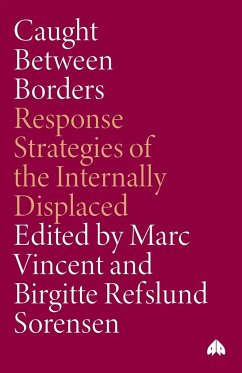Very little is known about how people respond to the experience of displacement. In economic terms, the presence of the internally displaced is obvious - as they open small restaurants and bars, or as they sell handicrafts at markets in order to make a little money. What are less obvious are the informal protection mechanisms that enable people to cope with the experience of displacement - the information networks that warn them of impending danger, or inform the displaced of events occurring in their home villages while they are absent.
Internally displaced persons are those who have been forced to flee their homes and who do not cross an internationally recognised border. Unlike refugees, they have no organisation to deal with their plight. Very little is known about how people respond to the experience of displacement. This is the first book to put together information on the networks that people have evolved for coping in such situations. Examining those people who have become IDPs as the result of violence and war, it uses case studies from different countries, different settings and different phases of displacement. The authors identify cross-cultural patterns of coping strategies, examine whether these strategies are effective and highlight to what extent they are dependent upon culture or the experience of displacement. This is a practical handbook that will help international organisations formulate their relief plans to support - rather than inadvertently damage - existing coping mechanisms. Case studies include Afghanistan, Angola, Burundi, Burma, Colombia, Georgia, Sri Lanka, Serbia, Sudan and Uganda.
Hinweis: Dieser Artikel kann nur an eine deutsche Lieferadresse ausgeliefert werden.
Internally displaced persons are those who have been forced to flee their homes and who do not cross an internationally recognised border. Unlike refugees, they have no organisation to deal with their plight. Very little is known about how people respond to the experience of displacement. This is the first book to put together information on the networks that people have evolved for coping in such situations. Examining those people who have become IDPs as the result of violence and war, it uses case studies from different countries, different settings and different phases of displacement. The authors identify cross-cultural patterns of coping strategies, examine whether these strategies are effective and highlight to what extent they are dependent upon culture or the experience of displacement. This is a practical handbook that will help international organisations formulate their relief plans to support - rather than inadvertently damage - existing coping mechanisms. Case studies include Afghanistan, Angola, Burundi, Burma, Colombia, Georgia, Sri Lanka, Serbia, Sudan and Uganda.
Hinweis: Dieser Artikel kann nur an eine deutsche Lieferadresse ausgeliefert werden.








